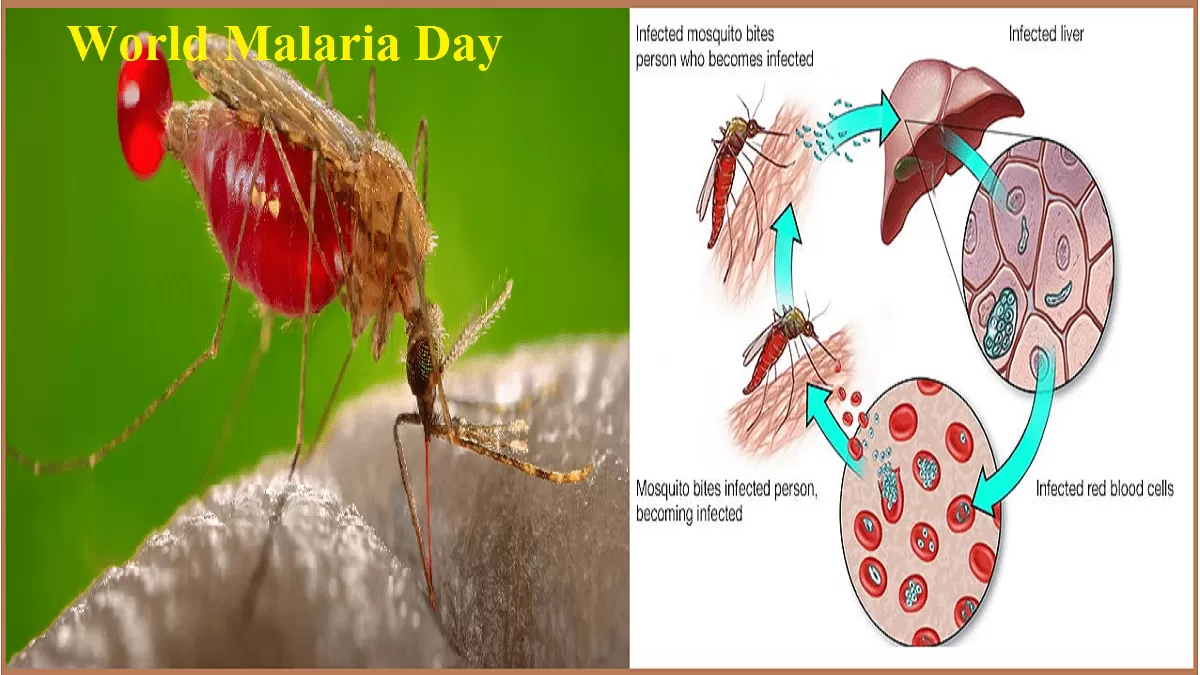World Malaria Day 2024: It is observed on April 25 to spread awareness of the global effort to control and ultimately eradicate malaria. World Malaria Day was first held in 2008. It was developed from Africa Malaria Day, which was an event that had been observed since 2001 by African governments.
According to the WHO, malaria is a preventable disease. It is also treatable, but it continues to have a devastating impact on the health and livelihoods of people across the world. There were an estimated 241 million new cases of malaria and 627,000 malaria-related deaths in 85 countries in 2020. In fact, more than two-thirds of deaths were among children under the age of 5 living in the WHO African Region.
Malaria is preventable & treatable - yet it continues to claim the lives of more than 600,000 people every year.
World Malaria Day raise awareness about the need for the prevention, control, and elimination of malaria. This day also marks the continuing great achievements in the fight against malaria. It is also necessary to provide education to the people for a better understanding of the disease malaria and how to cure it. Let us tell you that Malaria is a life-threatening disease that is caused by Plasmodium Parasites.
READ| Check Malaria, Symptoms, Causes, Risk factors, Prevention, Vaccine, and Malaria free Countries
World Malaria Day 2024: Theme
This year World Malaria Day 2024 is centered around the theme "Accelerating the fight against malaria for a more equitable world."
According to WHO, the theme for World Malaria Day 2023 is "Time to deliver zero malaria: invest, innovate, implement". A special emphasis will be on the third 'i' implement to reach marginalised groups with the current tools and methods.
The theme of World Malaria Day 2022 is "Harness innovation to reduce the malaria disease burden and save lives.” There is no single tool that is available that will solve today's problem of malaria. WHO is calling for investments and innovation that bring new vector control approaches, diagnostics, antimalarial medicines, and other tools to speed up the pace of progress against malaria.
The theme of World Malaria Day 2020 was "Zero malaria starts with me."
To end Malaria WHO joins the RBM Partnership in promoting "Zero malaria starts with me". It is a grassroots campaign with the objective to keep malaria high on the political agenda, mobilising additional resources and empowering communities to take ownership of malaria prevention and care.
According to WHO, between 2000 and 2014, the number of malaria-related deaths fell by 40% worldwide, from an estimated 743 000 to 446 000. WHO's World Malaria Report 2019 says that there were no global gains in reducing new infections over the period 2014-2018. And nearly as many people died from malaria in 2018 as the year before.
READ| World Health Day
World Malaria Day: History
World Malaria Day was developed from Africa Malaria Day which was first held in 2008. It was basically an event that had been observed since 2001 by African governments. They worked towards the progress goal which aimed at controlling malaria and reducing its mortality in African countries.
At the 60th session of the World Health Assembly, a meeting sponsored by the World Health Organisation (WHO) in 2007 proposed that Africa Malaria Day be changed to World Malaria Day to identify the existence of malaria in countries worldwide and to bring awareness among people globally to fight against malaria disease.
World Malaria Day also enables new donors to join in a global partnership against malaria, and for research and academic institutions to reveal scientific advances to the public.
The day also gives international partners, companies, and foundations a chance to showcase their efforts and reflect on how to scale up what has worked.
World Malaria Day 2024: Messages, Slogans, WhatsApp & Facebook Status, Quotes & More
Facts about Malaria
- Malaria is caused by the Plasmodium parasite. The parasite can be spread to humans through the bites of infected female Anopheles mosquitoes called ‘malaria vectors’. When a mosquito bites, a parasite is released into the bloodstream.
- There are different types of plasmodium parasites, but do you know that only five types of plasmodium cause malaria in humans. They are Plasmodium falciparum, Plasmodium vivax, P. ovale, Plasmodium malariae, and Plasmodium knowlesi.
- Plasmodium falciparum is responsible for the majority of malaria deaths globally and is the most prevalent species in sub-Saharan Africa.
- Plasmodium vivax is the second most significant species and is prevalent in Southeast Asia and Latin America.
- Together P. vivax and Plasmodium ovale causes complication of a dormant liver stage and can be cured.
- Malaria is an acute febrile illness. Its symptoms usually appear 10-15 days after the bite of an infected mosquito. At the starting stage, its symptoms are fever, headache, and chilling effect.
- The main way to prevent and reduce malaria transmission is vector control which is to use insecticide-treated mosquito nets and indoor residual spraying.
- Apply insect repellents like cream, lotion, spray, etc., and avoid the bites of mosquitoes. Also, for this wear protective clothes that cover your arms and legs.
- Malaria is preventable and curable, and increased efforts are dramatically reducing the malaria burden in many places.
Note: World Malaria Day is observed every year on 25 April to spread awareness among people globally to fight against malaria. Strange but true, one child dies from malaria every 2 minutes.
Source: WHO
Also, Read
April 2024: List of important National, International Days and Events
